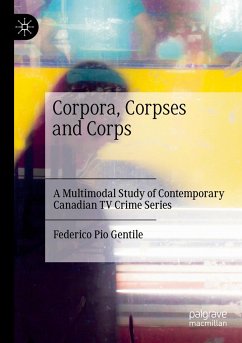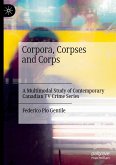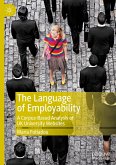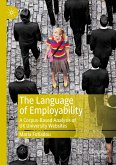This book uses corpus and multimodal methods to present a comparative study of three major Canadian TV crime series, Flashpoint (2008-2010), Motive (2013-2015) and 19-2 (2014-2016), paying special attention to cinematic techniques. Following an overview of the methodology and the Canadian cultural milieu of the study, the author approaches the three series as complex cultural and linguistic productions that depend heavily on a national appropriation of a genre whose popularity is growing internationally. The book investigates the verbal, nonverbal and paraverbal strategies employed by each production to create the patterns that make this genre appealing to a variety of audiences, and uncovers some of the psychological processes at work in contemporary Canadian TV crime serials. This book will be of interest to scholars in fields including Corpus Linguistics, Multimodal Studies, Canadian Studies, Media and Communication Studies, and Specialised Discourse.
Bitte wählen Sie Ihr Anliegen aus.
Rechnungen
Retourenschein anfordern
Bestellstatus
Storno








